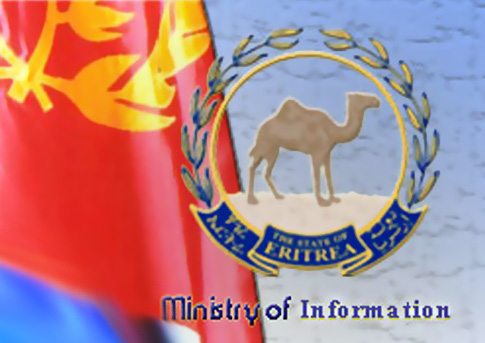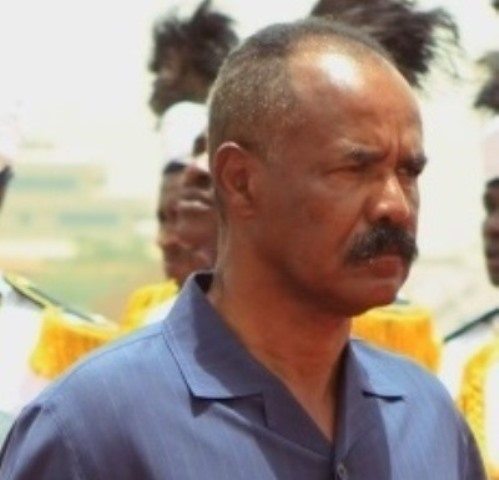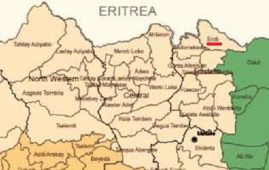Despite two years of discussions under the Bilateral Dialogue Mechanism, the US State Department published yet again a report that ‘only adds a few new lies and fabrications to the old ones’ and unworthy of detailed reponse, grumbles the statement by the Ethiopian government.
The Ethiopian government dismissed ‘in entirety and with the contempt’ the 2010 US State Department Human Rights Report on Ethiopia published last Friday.
The Ethiopian Ministry of Foreign Affairs(MFA) disparaged the report in its weekly press release ‘A Week in the Horn’ published today, April 15/2011.
The statement by MFA also criticized the Report for its oxymoron use and reference of sources. The statement said:
Not for the first time, the Report narrates groundless and unverifiable allegations and repeats the same politically motivated accusations obtained from dubious sources. The report refers to these as “reliable” and “credible” but ironically, it also identifies many of them as “violent movements” and “opposition sources”.
The statement indicated that the report for the most part is recycled from previous years’ reports. The Ministry expressed its ‘regrets that once again ‘over 80% of the publication reproduces, almost verbatim, claims contained in previous reports’.
The statement also indicates the secret behind the qualitative improvements in the 2010 (which I indicated previously and to be discussed further in the forthcoming post). However, it appears that didn’t met Ethiopia’s expectations.
Ethiopia and the United States had established a Bilateral Dialogue Mechanism in Washington two years ago, according to MFA’s statement. Consequently, the two have been involved in a series of political discussions that include Human rights issues. Nonetheless, the statement states:
Ethiopia was optimistic that the dialogue exercise would lead to undertaking objective assessments of situations in Ethiopia as well as the identification of areas in which the United States can extend support to our democratization process. Judging by the content of the Report, it is our understanding that the political dialogue mechanism did not produce the desired outcome, as the report only adds a few new lies and fabrications to the old ones that we had already responded to in detail.
Though MFA spokeswoman, Ambassador Dina, told Walta Information Center on Wednesday that the government would give a reply to the report soon. The statement issued today declared that ‘the Government does not intend to respond in detail‘ to this report.
The statement doesn’t explicitly contradict Ambassor Dina’s claim that ‘the report doesn’t affect the existing excellent and longstanding bilateral relations between the United States and Ethiopia.’ However, it is of note that the Ethiopian government chose to respond to the report only through a weekly press statement. It is not clear whether that is suggestive of the irritation of the Ethiopian government or an intention not to escalate the matter.
Read below the text of Ethiopian government response to the 2010 Human Rights report.
***********
The U.S. State Department’s annual Human Rights Country Report for the year 2010 on one hundred ninety four countries, including Ethiopia, was released on 8 April 2011.
The Ministry of Foreign Affairs of the Federal Democratic Republic of Ethiopia has thoroughly examined the Report on Ethiopia. It regrets that once again over 80% of the publication reproduces, almost verbatim, claims contained in previous reports. Not for the first time, the Report narrates groundless and unverifiable allegations and repeats the same politically motivated accusations obtained from dubious sources. The report refers to these as “reliable” and “credible” but ironically, it also identifies many of them as “violent movements” and “opposition sources”.
There are some newly added entries but these, too, are also a compilation of fabricated stories, misleading judgments, and claims invented by opposition elements with known motives. In the spirit of “telling a lie often enough will make people in the end believe it”, opposition networks are quick to see the State Department’s annual report as a vehicle to tarnish Ethiopia’s image. Some of the entries also find their way into the reports of “advocacy” networks such as Human Rights Watch, always quick to pickup anything detrimental to Ethiopia or which might encourage a down turn in Ethiopia-US relations.
In order to enhance better understanding between our two governments, Ethiopia and the United States have been involved in a series of political discussions under the framework of the Bilateral Dialogue Mechanism jointly established in Washington two years ago. Human rights is one of the issues in these discussions. Ethiopia was optimistic that the dialogue exercise would lead to undertaking objective assessments of situations in Ethiopia as well as the identification of areas in which the United States can extend support to our democratization process. Judging by the content of the Report, it is our understanding that the political dialogue mechanism did not produce the desired outcome, as the report only adds a few new lies and fabrications to the old ones that we had already responded to in detail.
The Ethiopian Government is disappointed that the Report again follows the old path of compiling fictitious stories without a serious attempt to verify the facts. The fact that this is happening at a time when the two Governments are actively engaged in a dialogue on the matter is even more disappointing. Indeed, the Ethiopian Government is entitled to raise the question as to whether the intention of the Report is to compile fabrications with a view to tarnishing the image of the Country or engaging the Government to address any challenges with respect to the human rights situation in Ethiopia.
The Government therefore, dismisses the Report in entirety and with the contempt that it deserves and the Government does not intend to respond in detail at this time.





